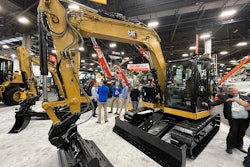
Money does not motivate long-term success, or even short-term success for that matter. At Sunrise Landscape + Design in Virginia, I led a Leader’s Edge Peer Group discussion on the topic of using rewards to reinforce good habits, sustained performance and loyalty.
Here are some excerpts, along with new concepts I have developed, that will turn some of your old ideas on their head and give you fresh thinking about rewards and how to use them. Plus, I will share two superb books on the subject.
1. The work itself is the reward for some employees.
That holds true for designers, design-build craftsmen, even for salespeople. Here is an example:
A very successful Midwest contractor I work with has a large sales team of designers on 100-percent commission. The salespeople are highly successful; however, one of them had an inexplicable yearlong dip in sales.
We spoke with this person and it turns out he had been giving his boss hints all along on what motivated him. Not money. He wanted the owner to stop by and visit his jobs – that is, show attention to his design work. Because that is what spun his prop.
Question: Are you ignoring the signals that your people are already giving you about what motivates them?
2. “Finishing the work” is the reward for specific groups of employees.
Snow-plow drivers are motivated by getting their work (checklist) done. The same goes for many in maintenance: “Get route done!” In this case, asking team members to help the stragglers can actually backfire.
3. Training is an inherent reward, but it can backfire.
Good employees appreciate the investment in their careers when they are paid to train, especially when the training allows them to climb a career (pay) ladder. Foremen are also motivated to train their crews, because they are rewarded by less hassle and better productivity.
But, here’s a caveat: They can be demotivated if you transfer their newly trained laborer to another crew or division. This is why it can make sense to have a dedicated foreman whose job is to train the new workers. They can be rewarded for spinning off newly trained laborers and foremen.
4. Free food and drink is a reward.
A study published by USA Today shows that food (provided free by the company) is an important motivator at work – funny but true. It says this is especially true for millennials, but I think everyone appreciates it. Here’s why:
According to one expert, your Latino workforce is highly motivated (and more easily retained) when they are shown appreciation of hot cocoa in the winter and cool drinks in the summer.
Small surprises like dropping by with a power bar or candy bar can make people feel like you care. It is the small rewards that make life worth living!
Two of my clients told me they provide free beer on Fridays. (Beer is like food, if you are a monk!)
5. Parties bond.
Employees tend to stay at their firm because of their bond with co-workers. (And the biggest reason they leave is their boss.) So make sure every employee in your company has a well-trained boss and active, spirited relationships with their peers.
Question: Do you have at least four annual parties (gatherings with food) where employees can kick back and interact?
6. Individual hot buttons.
According to the book The 5 Languages of Appreciation at Work, each person resonates with a specific type of appreciation. This book is short and easy to read. Here is the summary:
Spending quality time (with the owner, for example) will motivate some people, yet demotivate others.
Getting support – for example, to finish a task (from managers, owners, administration) – is a definite reward for some, while it demotivates others, who prefer to work alone or achieve alone.
Positive affirmations (atta-boys, thank-yous, recognition) will really make some people feel special, but others may not get their jollies from this. More specifically, some people like public recognition and others appreciate private recognition.
Gifts for some people make them feel special; for others, they are meaningless, because the person would rather get one of the three aforementioned rewards. Same goes with money: Some people love getting money as a reward, while others find it impersonal and merely a way to pay bills.
Back slapping and other physical gestures motivate a small segment of your workforce, although in today’s lawsuit-driven world, this is not recommended.
While it is important to understand generational mindsets – millennials, for instance – it is more important to understand each individual. As David Katz, owner of Elite Landscapes, says, “Being aware of each person’s unique quirks, idiosyncrasies and preferences is the real key.”
Question: Do you know your employees as personally as David does? Do your managers?
7. Serving a higher purpose.
Many people feel rewarded serving a higher purpose. This purpose often falls into one of the following six categories: 1) serving the community, 2) benefiting the environment, 3) serving the customer, 4) building value for the employees, 5) pride of the work itself, 6) beating a top competitor. (Did you know that Under Armour has a canon on their campus pointed right at Nike headquarters?)
As owner, your constant reminder of your firm’s higher purpose will keep people motivated if the purpose is lofty and compelling. My examples above are general; your challenge is to refine your purpose so it is more specific, unique and compelling.
8. A rallying cry.
An achievement around a singular short-term (three- to 12-month) goal is an excellent way to pull everyone together from all divisions. This laser focus is also the best way to move mountains and hit big goals in your company!
The other book I recommend reading is The Power of Habit – a great read that links habits to rewards.
BREAKTHROUGH IDEA
Even commissioned salespeople are not necessarily motivated by money. Your best bet at excelling is to have a company-wide focus, a situational reward and the key to each individual’s motivations.
TAKE ACTION
Do a “stay interview” with your key employees: Ask them what keeps them wanting to work for you, what they find most rewarding and the types of appreciation they value most.
Share this article with others in your firm and ask them where the company can improve in its non-monetary rewards.
EDITOR’S NOTE: This article was written by Jeffrey Scott. Scott is a business consultant specializing in landscaping companies. Here’s his website.









